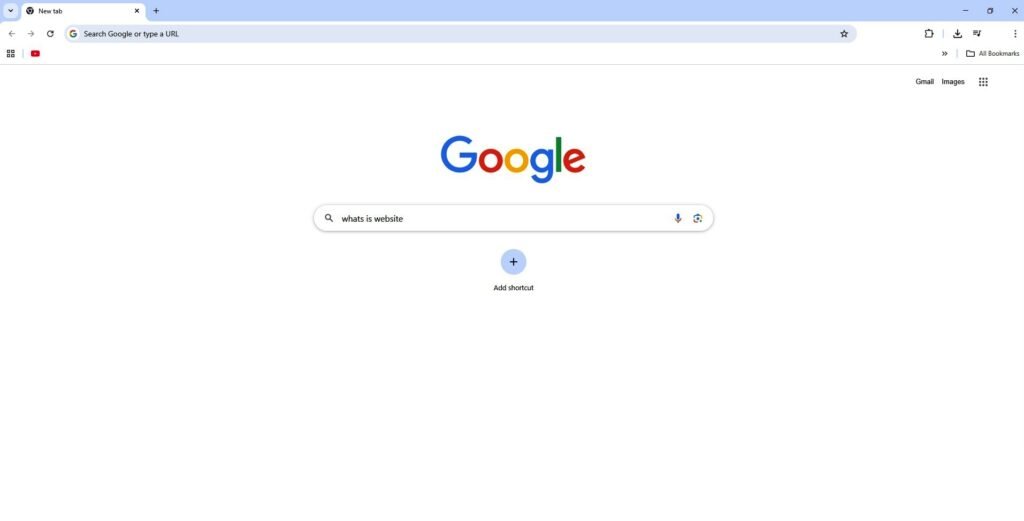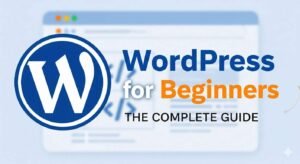Introduction of What is a Website?
In today’s digital world, almost everything revolves around the internet—and websites are the backbone of it. From social media platforms to online shopping portals, blogs to business sites—websites have become an essential part of our daily lives.
But what exactly is a website? How does it work? And why is it so important for businesses and individuals today?
This guide explains everything about websites in easy-to-understand language, including technical details for those who want to dive deeper.

What is a Website? (Simple Definition)
A website is a collection of web pages (documents) that are connected and accessible through the internet using a web browser like Chrome, Safari, or Firefox.
Each website has a unique address, called a URL (Uniform Resource Locator), which you type in your browser to visit the site.
Example:
In simple words:
A website is like a digital home on the internet, where you share information, services, or products.
Types of Websites
Websites come in many forms, depending on their purpose:
- Static Website
- Simple, fixed pages (like an online brochure).
- Built using HTML and CSS.
- Content doesn’t change frequently.
- Dynamic Website
- Content changes dynamically based on user interaction.
- Built using programming languages like PHP, JavaScript, or frameworks like WordPress.
- Example: Facebook, Amazon.
- E-commerce Website
- Online stores for selling products.
- Example: Amazon, Flipkart.
- Portfolio Website
- Showcase work for professionals like designers, photographers.
- Example: Behance portfolios.
- Blog/Content Website
- Focused on articles, tutorials, and news.
- Example: Medium, WordPress blogs.
- Business Website
- Represents companies and their services.
- Example: Corporate or agency websites.
How Does a Website Work? (Technical Explanation)
A website works through the following steps:
- Domain Name
- This is your website’s address (example:
www.dpcreations.in).
- This is your website’s address (example:
- Hosting Server
- A powerful computer where your website files are stored.
- Hosting providers: Bluehost, Hostinger, SiteGround.
- Website Files
- HTML (structure), CSS (design), JavaScript (functionality).
- DNS (Domain Name System)
- Converts your domain name into an IP address so browsers can find your server.
- Web Browser
- Users type the domain in a browser (like Chrome).
- Browser sends a request to the server.
- The server sends back the web pages.
In short:
User → Browser → DNS → Server → Website Loads on Screen
Main Components of a Website
- Front-End (Client-Side)
- What users see on the screen.
- Technologies: HTML, CSS, JavaScript.
- Back-End (Server-Side)
- Handles logic, database, and functionality.
- Technologies: PHP, Node.js, Python, MySQL.
- Database
- Stores all data like user details, blog posts, product info.
- Web Hosting
- Server space where your site is stored.
Why is a Website Important?
- Online Presence – Your brand is visible 24/7.
- Business Growth – Reach customers globally.
- Credibility – Builds trust.
- Marketing Tool – Helps in SEO and lead generation.
- Monetization – Blogs, e-commerce, and ads can generate revenue.
Basic Requirements to Create a Website
✔ Domain Name (Example: dpcreations.in)
✔ Web Hosting (To store your files) (Very Cheap and Powerful Hosting)
✔ CMS or Code (WordPress or custom coding)
✔ Design & Content (Pages, images, text)
Advanced Technical Aspects
- HTTPS & SSL Certificate – For security.
- Responsive Design – Works on mobile, tablet, desktop.
- Speed Optimization – Faster websites rank better.
- SEO Optimization – To rank higher on search engines.
Conclusion
A website is more than just a digital presence—it’s your brand identity online. Whether you’re a business owner, freelancer, or blogger, having a website is essential in today’s competitive world.
Tip: If you want a professional, responsive, and SEO-friendly website, start with WordPress—it’s beginner-friendly and powerful.





